 Love. Love when it's easy. Love when it's hard. Love yourself. Love others. In fact, love everyone, all the time, like sun shines and rain falls. Think this is an over simplification? Try it and watch what happens. Sourced in God, your love isn’t personal, but it is powerful. Let your prayers lead you to deeper discoveries of what it means to be the image and likeness of the divine Love that is God. Let Love show you what you are, how extraordinary you are as God’s own ray of love-light. Real love is pure and strong and healthy. You ARE made perfect in love just like your Father-Love. You are built to express love just like your Mother-Love. Why not start there in prayer? The alpha and omega, the beginning and the end of you is love. It is your divine right to see it. You must see it. You can see it. Love.
A full-text version of this blog can be delivered to your email inbox.
Please subscribe in the sidebar. You may also wish to: VISIT MY WEBSITE HOME PAGE READ MORE BLOG POSTINGS FIND A LIST OF MY OTHER PUBLISHED CONTENT 7/26/2014 Let's talk about sin, baby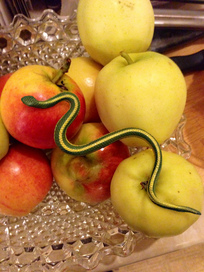 Remember that Salt 'n' Pepa song from 1991, "Let's talk about sex"? The chorus says, Let's talk about you and me Let's talk about all the good things And the bad things that may be So, OK. Let's. Only, let's change things up, baby. Let's talk about sin. Mention sin and some automatically think of sexual immorality or wrong-doing to a neighbor. But, Christian Science broadens the term to include any action or thought that tries to separate one from the divine source of all good, from God. In that sense, sin is the ultimate distraction. It obscures one's ability to see, feel and experience the healing Christ. It shuts down inspiration. It depletes energy and zaps joy. Sin makes one feel unwilling and unable to understand and practice Christian healing. This makes sin an assassin, crushing joy, peace, effectiveness at healing, harmony and health. It kills and kills and keeps killing until it is exposed and stopped. When it comes to sin, we have to be willing to look at it. Unmask it. Pop it out from under cover and eliminate its toxic and deadly influence on us. Over the centuries, sin has been discussed under seven so-called carnal or deadly categories - anger, lust, gluttony, sloth, envy, greed, and pride. Under these seven categories you can effectually list any negative trait or behavior that is anti-Christ. Christ Jesus’ Lord’s Prayer can provide a helpful springboard for addressing any category of sin. For example: 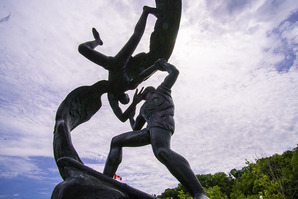 Jacob wrestling with angel, Nathan Rapoport, 1978, Toronto. Jacob wrestling with angel, Nathan Rapoport, 1978, Toronto. Our Father, which art in heaven addresses ENVY. No one is left out of “OUR” Father. No imbalance. No haves and have nots. Through our connection with the Father-Mother each one of us is linked directly to heaven. No one and nothing can limit our expression and experience of good. No exceptions. (Here is another blog post that illustrates a cool healing of envy.) Hallowed be Thy name takes care of ANGER. It is God’s name and nature that is hallowed, that is honored and worshipped as holy. True worship involves not just appreciating but reflecting that holy nature. There is no reaction in reflection. Reflection is a response or a giving back to the original, but never a reaction to the original or to any other source. You know what healed Jacob of his anger and fear at Peniel? He saw God face to face – that’s what Peniel means: "God face to face." Reflection. To see God, was to see himself. So what was that angel Jacob wrestled? A correct view of himself as Godlike. When he glimpsed his own real nature, he found no anger there. Hallowed be God’s nature. Hallowed be yours. (Check out another post on healing anger.) Thy kingdom come; Thy will be done on earth as it is in heaven is a great one for SLOTH. God’s kingdom is the atmosphere of ideas in which we work. God’s will is our motivator and goal. Praying to know and yield to the divine will for good and only good eliminates stubbornness and self-will. This shift produces more order at home and at work. It redeems from procrastination, mental dullness, spiritual apathy and laziness. (Could you use some ideas on mastering self-will? Check out this post.) Give us this day our daily bread can be really helpful in eliminating GLUTTONY. Hoarding and overindulgence in any form is handled when we drop the fear that what we love or what we need may not be here today. But God’s grace is here today. Everyday. It satisfies our needs and desires. He sends us spiritual ideas to feed our famished affections and meet our needs. Taking what he gives, accepting our daily bread, produces balance and satisfaction. No more overeating, overspending, overindulging, overreacting, over-saving, overstocking, and even oversleeping – all gluttonous behaviors. (Looking for that unlimited supply of grace and good? Check out this post.) And forgive us our debts as we forgive our debtors is helpful against GREED. It is an equation of sorts with the word “AS” as the equal sign. And Love is reflected in love. God forgives and we forgive. God gives, and we give. The divine Principle, or God, of supply includes balance and generosity and abundance for all. (See another post on this one, too.)  And lead us not into temptation, but deliver us from evil offers a wit-sharpening, courage-inducing prayer to counter LUST. The book of Esther in the Bible tells the story of Vashti, Ahasuerus’ queen, who refused to cater to her husband’s deviant request that she parade herself naked before his friends. It took such moral courage at great personal risk to take that stand before her husband and king. Even though it cost her a human crown, later Scripture confirmed that her virtue was her real crown! Proverbs states, “A virtuous woman is a crown…:” Proverbs 12:4 Perhaps the issue with lust is not so much that the suggestions come, as it is that we have the power to choose, as Vashti did, to follow the leadings of good – that is, to acknowledge and act on the natural force, the powerful draw, to purity. God doesn't lead us into temptation. Ever. Lust is not a natural propensity of man. The Lord’s Prayer helps us master and express our natural propensities for purity, moral courage, and goodness. (Yup, I have an interesting post on sex.) For THINE is the kingdom, and the power, and the glory, forever is a good line for flushing out PRIDE. I have an old cartoon clipping. Two monks are examining a list of the seven deadly sins. One monk said to the other, “After you’ve successfully resisted the other six deadly sins, its really hard not to be proud!” What is real belongs to God. Acknowledging God’s kingdom, power and glory is an ultimate statement of humility, and humility counteracts pride – an inflated or deflated sense of one’s self. Pride can take the form of superiority or inferiority. We've got to root out both. God is the kingdom in which you work, the power with which you work, and the glory for which you work – now and forever. That idea can take you far. (And here are a few more thoughts on the kingdom to nourish your prayers.) During a class to train Christian Science teachers, a student named Mrs. Otis asked Mary Baker Eddy how she was to demonstrate over weak eyes. The response was, "Make yourself better every hour and don’t think of eyes.” (Joshua Bailey notes, Mary Baker Eddy Library) Make yourself better every hour. Eliminating the influence of sin in our own lives brings the clearest discernment, deepest compassion, and strongest spiritual authority. It makes one an effective healer. A full-text version of this blog can be delivered to your email inbox.
Please subscribe in the sidebar. You may also wish to: VISIT MY WEBSITE HOME PAGE READ MORE BLOG POSTINGS FIND A LIST OF MY OTHER PUBLISHED CONTENT  I wrote an email last night. Had to tell someone No. I needed to be clear but kind (two introductory sentences). Really, really clear (two explanatory sentences). But also instructional (three inspirational/where-to-go-next sentences). But make no mistake about it, I really meant No (another two paragraphs). I looked it over and it seemed a bit heavy. So I read the email to my husband. I tried to ignore his horrified look as he came to my side. He started dictating as I wrote. But his phrasing was a more complicated (read: proper) French than I use. (Did I mention I was writing in French?) They would know I didn't write it. He wanted me to drop a phrase I used several times ("in fact" - how did I miss that?) and tone down a few other repetitions - to change this and rewrite that. After a few minutes in frustration, I thanked him but said I made a BIG mistake inviting his help, and I sent him back to his side of the sofa. Then he said, "Sometimes the kindest thing to do is to just say No." Ahhh! I thought about what Jesus said, "Just say a simple, 'Yes, I will,' or 'No, I won't'" (Matthew 5). I looked at the email again. On second thought, my husband's first sentence was appropriate, professional and quite kind, so I kept it. Then I highlighted and deleted the entire rest of the email. I wrote a sentence that said No in a direct and simple way. All the heat and concern and fear and overcompensation (read:overkill) drained out of the message. What was left was clear, kind, instructional and inspired. After I sent the email, I thanked my husband for patiently putting up with me as I worked through yet another life lesson. Sometimes the kindest thing really is to just say No. New International Version Biblehub.com is a great site for comparative Bible references. If you aren't familiar with it, check it out! A full-text version of this blog can be delivered to your email inbox.
Please subscribe in the sidebar. You may also wish to: VISIT MY WEBSITE HOME PAGE READ MORE BLOG POSTINGS FIND A LIST OF MY OTHER PUBLISHED CONTENT 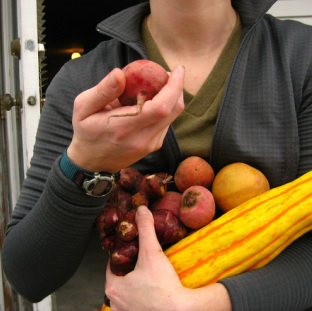 There is such balance in Christ Jesus' prayer. I see "Forgive us our debts as we forgive our debtors," as an equation of sorts. Look at AS as the equal sign. We are forgiven AS we forgive. We are free AS we free. Mary Baker Eddy summed up the perfect balance of the equation when she wrote, "And Love is reflected in love." God forgives and we forgive. God gives and we give. The divine Principle of supply includes balance. In Science and Health with Key to the Scriptures, Mary Baker Eddy states, “Giving does not impoverish us, neither does withholding enrich us in the service of our Lord.” (79) In fact, the opposite is true. Giving enriches and withholding impoverishes – because if we believe that we are not in a position to give, we may be dealing with the obstructive sin of greed. All we ever do, we do by reflection! According to Genesis 1, God's man is made in His perfect and good image and likeness. God, the great Giver, gives. Therefore we, the Giver's image, give. It’s not that God gives and we receive. That would be absorption, wouldn’t it? It would imply the need to store up, or the possibility of exhausting, our divine resources. But the Principle of giving, the Principle of supply, is God. And God's supply is reflected in us as His well-supplied creation, reflecting His giving nature. God gives and we reflect His giving, and thus the flow of good continues forever unobstructed. I believe that this sense of ceaseless giving is ultimately the divine law that is behind the Biblical concept of tithing. A tithe is not a tax. A tax could exhaust one's resources. A true and honest tithe can only come from a spiritual understanding of the abundance of what God gives. This spiritual understanding opens the door to the divine economy where divine Love meets EVERY human need in just the right way.  Remember the disciples' role when the loaves and fish were multiplied for hungry thousands? What little they thought they had was distributed freely. In the human economy, such giving might follow the mathematical rule of subtraction. But in the divine economy, through Christ Jesus' understanding of the Principle of reflection that is God, the result was a multiplication of provisions. Loaf and fish multiplied until all were fed. And no one was left out. How many disciples distributed? Twelve. How many baskets were gathered when all the work was done? TWELVE. One scholar noted, “When all were fed, when the job was done, they gathered up twelve baskets full, one basket for each Apostle. No waste, but no stinginess. God does not starve His staff.” (Interpreter's Bible Commentary) I love that! In the divine economy, there is no paltry return on investment. God gives and so we have an abundance to give. In simple terms, tithing is a 10 percent investment with a 90 percent return. Who can beat that in any other market? Tithing isn't limited to giving in church, although that is a good thing, too. Check out Mary Baker Eddy's inspired take on the gifts we have to give: "TITHE. Contribution; tenth part; homage; gratitude." Science and Health, 595)  Is there any area of human life that can''t be benefited by rendering homage or reverence to God's goodness and contributing a little time, attention, prayer and other acts, with gratitude? Are you looking for the confidence and spiritual authority that opens your prayers to abundant good? Think about your giving - of time, of energy, of prayer, of service to family and others - even of paying your bills - not, as a burden, but rather as an investment of good, flowing from divine Good, from God, and reflected fully in you. Claim your fat and flourishing return. You are God's image and likeness. No one and nothing has more to give than you do, by perfect, flawless, unobstructed reflection. This I say, He which soweth sparingly shall reap also sparingly; and he which soweth bountifully shall reap also bountifully. Every man according as he purposeth in his heart, so let him give; not grudgingly, or of necessity: for God loveth a cheerful giver. And God is able to make all grace abound toward you; that ye, always having all sufficiency in all things, may abound to every good work: As it is written, He hath dispersed abroad; he hath given to the poor: his righteousness remaineth for ever. Now he that ministereth seed to the sower both minister bread for your food, and multiply your seed sown, and increase the fruits of your righteousness; Being enriched in every thing to all bountifulness, which causeth through us thanksgiving to God. For the administration of this service not only supplieth the want of the saints, but is abundant also by many thanksgivings unto God; Thanks be unto God for His unspeakable gift. The Apostle Paul, II Corinthians 9:6-11,14 This post originally appeared April 12, 2012. A full-text version of this blog can be delivered to your email inbox.
Please subscribe in the sidebar. You may also wish to: VISIT MY WEBSITE HOME PAGE READ MORE BLOG POSTINGS FIND A LIST OF MY OTHER PUBLISHED CONTENT 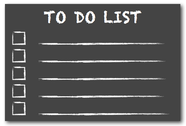 How do you keep your focus, spiritual consistency, and clarity with so many demands on your time with caring for a family member, teaching, lecturing, blogging, Facebooking, answering email, studying, and healing and all the other things you do? I’m glad, but amazed, you have time for social media, which can consume huge amounts of time if you try to stay up with all your “feeds” and everyone who “friends” you. It can feel like a lot to keep up with all the responsibilities of practicing, teaching, family, church and friendships. There have certainly been times that I have felt overwhelmed by many things to do. When this has happened, I find that the thing I have often shortchanged has been my prayer and study for my own spiritual growth. And once my own spiritual resources are depleted, I find I have little inspiration or spiritual energy left with which to help others. So I have learned to put my prayer and study time first. It is amazing what that takes care of. For example, my blog posts give a peek into the workshop of my daily prayer. Some posts take weeks of thought on a subject, little by little each day. Others write themselves in minutes. But every one of them charts the progress of my prayer for me, for my practice of healing prayer, and for the world. Study, prayer and writing aren’t three tasks to me. They are the same thing. Consequently, things are dealt with in my Bible research, prayer and writing that make my response to patient calls clearer and more direct. Treatment becomes simpler and cases more responsive. 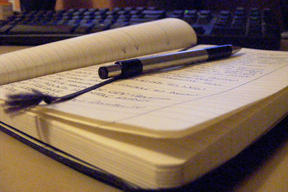 My teaching comes out of this same study, prayer and writing. The ideas developed keep the teaching fresh and the tasks a joy. As for lecturing, I only lecture on topics burning in me to share. Again, that fire kindles in my regular study, prayer and writing. Pretty much every part of every lecture I give is first worked through in a blog post. When special needs crop up in the family, I sometimes put one or more of my other activities on hold. A temporary pause allows me to give the attention necessary to help my loved ones progress along quickly. But I never, ever neglect my daily prayer and Bible study. That is where my patience is nurtured, along with the qualities of kindness, hope, faith, cheer and support that are the best aid. Social media is an extension of blogging for me. For all that it gives back to me, I devote very little time to it. Were I to total it in a day, I would say ten minutes – that is five times two minute intervals. I have hundreds of Facebook and Twitter friends. There is no way I could read every post. So I do a quick scan, “like” or "retweet" a few things that uplift and extend the communication of good ideas, post a blog, or share something that makes people smile. Having the apps on the iphone makes it easy to check in and check out , making Facebook and Twitter much less time-consuming than on the computer. 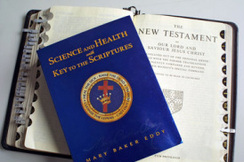 Everyone has to find their own way to balance what is important. A big lesson for me has been to step away from my human tendency to multitask – which translated into doing lots of things halfway – to give focused attention to one thing at a time until it is well done. Then I can move on to the next, finding that one task naturally prepares the way for the next. Eliminating the pressure to “perform” many things at once has allowed for a much steadier flow of accomplishment and better quality results. If there is any take-away from this little sharing, I hope you see how everything we do needs to be anchored in prayer for ourselves, and in the enrichment of inspiration and spiritual understanding that comes from regular time devoted to studying the Bible and Science and Health. If writing helps you keep focused, then do that, too! With regular prayer and spiritual study, there really are no limits to what can be accomplished in each day. In the words of Paul to the Philippians (2:13): New International Version P.S. You might like to check out today's Christian Science Monitor "Christian Science Perspective" article by Barbara Beth Whitewater, CS. She is a Facebook friend and colleague. Her article "One perfect twig at a time" takes on and tears down the fear that we can't get it all done. She writes, "The nest-building showed me how natural it is to expect God to lovingly care for every detail of His creation, one perfect twig – and step – along the way." Not a subscriber and want to be?
It's easy! Just sign up in the sidebar. You may also wish to: VISIT MY WEBSITE HOME PAGE FIND LINKS TO MY OTHER PUBLISHED CONTENT LISTEN TO A COLLECTION OF MY "YOUR DAILY LIFT" 2-MINUTE PODCASTS 7/12/2014 The patient's role in healing A colleague shared something her Christian Science teacher once said: “You can’t have ‘Heal me, but don’t change me.'” Science and Health with Key to the Scriptures explains, "The effect of this Science is to stir the human mind to a change of base, on which it may yield to the harmony of the divine Mind." (Mary Baker Eddy, 162) As a patient gives consent to what God as the divine Mind is doing for him, things change. While a patient may tend to watch the body, or what he perceives to be his problem, for signs of improvement, this isn’t the only place where change is happening. Working together through prayer, practitioner and patient become witnesses together of the power of the Christ to produce/reveal harmony in human minds and bodies. In Christian Science treatment, change is a normal response and should be expected. But sometimes in the process of change things may look and feel a bit messy. Christian Science uses the term "chemicalisation" to describe "the process which mortal mind and body undergo in the change of belief from a material to a spiritual basis." (Science and Health, 169) Have you ever set about cleaning a cupboard by dumping out all of the contents on the counter? Were you to stop too soon and judge your progress by the mess, you might lose the vision of what you are trying to accomplish, get discouraged, and shove all the junk back in the cupboard to be dealt with later, or maybe not at all. Let’s say you told a friend about your cleaning project and enlisted her help. She may not be able to decide for you what to keep and what to throw out as useless, outdated, irrelevant or just WRONG, but she could help you keep your vision clear, encourage you to keep going and not be distracted by the short term mess. She might ask you to think about whether the things you are hanging onto are useful, beneficial and a blessing. She might remind you that it was courageous to start the project and that the same courage that got you started to clean up the messy cupboard would support you as you sorted things out. So now, let's say the case isn’t a cupboard, but is a physical problem generating some fear. And the friend you call is a practitioner that you invite to help you through her prayers. The practitioner would pray to witness to your spiritual perfection – that you are, in Jesus’ words, “perfect as the Father is perfect” as the image and likeness of God. Through her silent or audible mental treatment she would not and should not make human decisions for you relating to your care, but she would systematically cast out useless, outdated, irrelevant and just plain wrong fears that pull you down into disease. From the mount of spiritual vision she would see you out of the mess. She might even tell you what she sees about you, reminding you silently and sometimes audibly that you can see it, too. Christian Science healers are engaged to give Christian encouragement, to express patience and remove fear, and to inspire and help their patients with “legitimate Christian Science, aflame with divine Love.” (Science and Health, 367)  You, as the patient, would have a role to play, too – that is, to consent to the treatment and to the change of base that it produces. This doesn’t just happen at the point of asking for prayer. Sometimes, as patients, we need to give consent DURING treatment to what a practitioner is seeing, saying and knowing about our case. Just as we may invite a friend into our house, we may invite a practitioner into our mental house to help us sort things out, but it is still OUR house. Decisions are made there that are ours – alone with God – to make. I called a practitioner for help one day because I was sinking under a problem. I just wanted out. She asked me a question and gave me a little homework, something to think about while she prayed for me. I got off the phone and blew up. Was she kidding me? I was already sinking and now I had to do THIS on top? Fuming and ruminating, I didn’t do it at first. Then a thought interrupted the fuss, suggesting that were I to look at my case the way the practitioner did, I might not feel so lousy and burdened. So I did the little homework she had given me, and in so doing I changed the base of my thinking from the problem to the spiritual solution at hand. I was quickly healed.. In short: The practitioner prayed. She gave me something to consider and do for myself. I consented to change my base of thinking as I did the little homework. And I was healed. There is a passage in Yvonne Fettweiss's and Robert Warnack's book Mary Baker Eddy: Christian Healer that is oft-quoted as though it is the final word for all things relating to the responsibility of practitioners and patients in treatment. “When a student doesn’t heal, it’s his own fault. I am out of patience at hearing a student ask his patient to work when the patient is up to his ears in the waves. Don’t ask anything of your patient. Show him your Science and when he is healed he will work.” (Said to pupils during an 1889 class, page 151)  These comments are sometimes cited to prove that a patient has nothing and a practitioner has all to do in the work of healing. But as Jesus’ own example shows us, that isn’t necessarily true. Of his recorded healings we see that sometimes he made demands on his patients and sometimes he didn't. Sometimes he spoke to them at length and sometimes he didn't. Sometimes he expected things of them before, sometimes after, and often not at all. In other words, his approach adapted according to the needs of the case. So did Mary Baker Eddy’s. She wrote letters and made statements, such as that oft-quoted one, to individual practitioners and certain groups of pupils, speaking to their specific need and the needs of their cases. Would these comments apply to some others, also? Of course, they would. But at other times she addressed similar situations in different ways. This is why having access to her many counsels is so good for us. We have lots of good guidance to help us find our way in healing. Here are some other examples showing how she herself dealt with the sick: “Take the First Commandment for your medicine-it cures all disease.” (Written to Septimus Hanna in 1897, L05195) “Now rouse yourself to know that you are not living in the body but in God, in Spirit, in the good you do and are; Then you get out of the belief of health into the understanding of health, and are out – and out through Science, not suffering. Keep your thoughts away from me and grounded on divine Principle, not on a person.” (A letter to John Lathrop in 1903, L04262)  The chapter titled, "Interlude: Advice for Healers" in Mary Baker Eddy: Christian Healer has loads of comments on the healing practice. They illustrate a variety of approaches to working with patients - sometimes engaging them, and sometimes not, in the work. We need to exercise wisdom and discernment to know which insights relate most directly to our present cases. When it comes to private correspondence and conversations, however inspired they may have been to meet the demand of the hour, what applies to one does not necessarily apply to all. What is written in Science and Health with Key to the Scriptures, however, does apply to all of us. Mrs. Eddy wrote the Christian Science textbook as a scribe under orders from God. Science and Health underwent assiduous scrutiny, refinement of vocabulary and perfecting of content, - to a much higher degree than any other of her writings. She asked practitioners to place Science and Health in the hands of all their patients. Patients, therefore, shouldn't be surprised if a practitioner encourages them to open it and see what it says to them. A Christian Scientist requires my work Science and Health for his textbook, and so do all his students and patients. SCIENCE AND HEALTH, 456 The wise Christian Scientist will commend students and patients to the teachings of this book, and the healing efficacy thereof, rather than try to centre their interest on himself. RETROSPECTION AND INTROSPECTION, 83 For the word of God is quick, and powerful, and sharper than any two-edged sword, piercing even to the dividing asunder of soul and spirit, and of the joints and marrow, and is a discerner of the thoughts and intents of the heart. HEBREWS 4:12 Not a subscriber and want to be?
It's easy! Just sign up in the sidebar. You may also wish to: VISIT MY WEBSITE HOME PAGE FIND LINKS TO MY OTHER PUBLISHED CONTENT LISTEN TO A COLLECTION OF MY "YOUR DAILY LIFT" 2-MINUTE PODCASTS 7/11/2014 Metaphysics and mathematics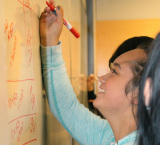 1 + 1 = 2 1 nucleosynthesis process in stellar evolution + 1 nucleosynthesis process in stellar evolution = ? (Answer: 2 nucleosynthesis processes in stellar evolution) Don't get so distracted by the context of a problem that you forget you are doing simple arithmetic. The addition of two sums in mathematics must always bring the same result. NOTE: The blog I promised on the patient's role in healing will be up tomorrow. I have had such long posts lately, I thought I would lighten things up a bit. Not a subscriber and want to be?
It's easy! Just sign up in the sidebar. You may also wish to: VISIT MY WEBSITE HOME PAGE FIND LINKS TO MY OTHER PUBLISHED CONTENT LISTEN TO A COLLECTION OF MY "YOUR DAILY LIFT" 2-MINUTE PODCASTS 7/10/2014 How is your bedside manner? It's more than just what you say, or even what you do with a patient. Bedside manner, the good and the bad of it, extends to what you think, how you think, and what you do when you are NOT at the patient’s side. Christian healer and teacher Mary Baker Eddy understood that the morality and the spirituality of the practitioner affect outcomes on their cases, regardless of their method of practice. How did she know? Experience. Before the discovery of the scientific method of divine healing, which she would name Christian Science, Mrs. Eddy practiced – and later abandoned – homeopathy. A woman came into her homeopathic practice with a case of what was then called dropsy and today would likely be called edema due to congestive heart failure. The woman had been unsuccessfully treated by another homeopath, whose dosage of medicine caused an apparent bad reaction. Mrs. Eddy took the case and treated according to her understanding of proper dosage, and the woman steadily improved. But Mrs. Eddy soon discovered that, in fact, her prescription was identical to that of the prior physician – the same type and dosage that under his care produced horrible side-effects and under her care resulted in improvement. Why were the outcomes different? She later would explain in her textbook on Christian Science, “The doctor’s mind reaches that of his patient …His thoughts and his patient’s commingle, and the stronger thoughts rule the weaker. Hence the importance that doctors be Christian Scientists.” (Science and Health with Key to the Scriptures, 197) She also wrote, “The moral and spiritual facts of health, whispered into thought, produce very direct and marked effects on the body.” (ibid 370)  About that homeopathy case and other cases like it, Mrs. Eddy later noted that she was always praying to God to keep her from sin, and to guide her in her care for others. The Greek word for “sin” is Hamartia (Ham ar TEE ya) which can be translated ‘to miss the mark”. To be kept from sin includes to be kept from making mistakes and to hit the mark rightly in all things. "The doctor’s mind reaches that of his patient… “ Mrs. Eddy encouraged healers of all methods, medical doctors included, to clean up their thoughts and life of anything that might affect their patients adversely. She wrote, " If hypocrisy, stolidity, inhumanity, or vice finds its way into the chambers of disease through the would-be healer, it would, if it were possible, convert into a den of thieves the temple of the Holy Ghost, — the patient’s spiritual power to resuscitate himself." (ibid 365) I read that one day and thought, "Hypocrisy? Stolidity? Inhumanity? Vice? Who me?" Then I remembered a case where I asked something of a patient – to consider a spiritual concept more deeply – that I had not and was not doing myself. His healing did not come. When I realized my error, - the hypocrisy even - of demanding something of someone else that I was not practicing myself, I got to work and did the assignment. Then the man was quickly healed. What about stolidity? It's the state of being unmoved mentally, impassive, unemotional. Had I ever been stolid in my treatment work, perhaps going through the technical motions but stopping the prayer before I felt the mental movement of the Holy Ghost in my consciousness? Hmmm. 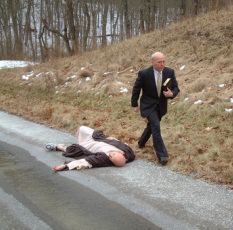 How about in my life? Had I ever passed by someone in need without praying? Or put on a hard face when confronted with poverty or crime in the street or on the news? I could see I could do better for my practice by eliminating all traces of stolidity from my life. Inhumanity? Now here I was really sure I was innocent. But then I asked myself if I had ever delayed to pray for someone until I was finished working on something else. Had I ever put my personal needs before someone in pain or suffering from fear? I remember the time I forgot to treat a patient that I had agreed to pray for. I got busy with another commitment and hours passed before she got the help that she had requested and that I had agreed to give. That's neglectful. Putting selfish interest before the needs of others, too, is cruel. Neglectful, cruel and inhumane are synonymous. What about vice? Well, we all know my Oreo cookie story. (Listen here if you don’t.) Look. This post isn’t about true confessions. I am talking about cleaning up one’s bedside manner to be a better transparency for the healing Christ. We can all likely do better. I know I can. In fact, until we consistently heal instantaneously, we must DEFINITELY do better. In Christian Science practice, the healer has to be sharp and aware. His treatment must witness to the Holy Ghost and its healing action on the patient. But if the healer is distracted or preoccupied by unhealed hypocrisy, stolidity, inhumanity, or vice, he may not be as sharp and as aware as he needs to be of what the Christ, through the Holy Ghost, is doing for the patient. Here are two tips for improving your bedside manner.
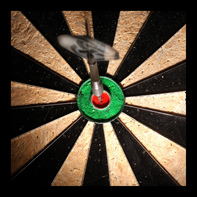 We want to be good, really GOOD at helping and healing, right? Good bedside manner involves more than a friendly face and a kind word. Regular prayer to be kept from sin and asking God or guidance on cases should unmask and destroy any lurking sin that would prevent one from being a genuine aide. Don't let yourself be stuck in self-condemnation or guilt. Science and Health is quite clear on this point. Mrs. Eddy explained that they, along with a faltering or doubting trust in Truth, God, "are unsuitable conditions for healing the sick. Such mental states indicate weakness instead of strength… You must utilize the moral might of Mind in order to walk over the waves of error and support your claims by demonstration.” (Science and Health, 455) Christ Jesus gave wise counsel to all healer’s: “First cast out the beam out of thine own eye; and then shalt thou see clearly to cast out the mote out of thy brother’s eye.” (Matthew 7:5) And the Daily Prayer reminds us to "let the reign of divine Truth, Life, and Love be established in me, and rule out of me all sin." (Manual of The Mother Church, Article 8, Section) Patients, too, have a role to play in healing. No free passes here! My next post will speak to this recently unpopular and sometimes touchy point. Not a subscriber and want to be?
It's easy! Just sign up in the sidebar. You may also wish to: VISIT MY WEBSITE HOME PAGE FIND LINKS TO MY OTHER PUBLISHED CONTENT LISTEN TO A COLLECTION OF MY "YOUR DAILY LIFT" 2-MINUTE PODCASTS 7/8/2014 When the patient seems unreceptive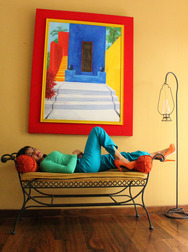 Questions from a blog reader: Can the Truth heal someone who is not receptive to it or does not appear to be receptive to it? More to the point, can a Christian Science practitioner effect healing when receptivity is not, or does not appear to be, present by the words and actions of the person asking for prayer? I know Mary Baker Eddy healed a few people just riding by in her carriage, but most likely not everyone she passed. Jesus did not heal many in Nazareth, and although he healed the crowds that followed him or sought healing and truth, there is no record I am aware of that he knocked on doors and pulled people out of their houses to heal them if they were not actively trying to seek him or reach him in some way. Jesus also did not appear to heal Judas or the Sadducees or Pharisees. Is receptivity an essential quality to healing like speed, lift, and thrust are essential to get an airplane off the ground? Or not? There is a certain unspoken question that often hides behind these questions and others like them: Why isn’t this case being healed? Interestingly my response is very different depending on who is asking. If the practitioner is asking “Can I be doing more,” I will probably say yes. If the patient asks “Can I be doing better,” my answer, too, is probably yes. It is never a question of blame, but a question of “What is the next step of spiritual progress?” And there is always something more we can do. I would never tell a practitioner that lack of healing is an unreceptive patient’s fault, nor a patient that he should blame the practitioner. Firstly, it would be neither helpful nor true. Secondly, the one seeing the problem is the one who has the problem. 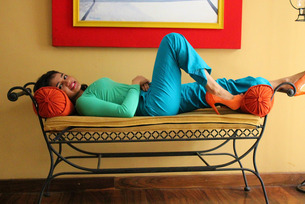 So, to the first question – the receptivity of one who is asking for healing prayer: The fact that the person invites the help gives the opening needed for the practitioner to look on the person’s heart in prayer. Through the tender ministrations of divine Love he can uncover the patient’s true motives and desire for healing, that is, his spiritual receptivity. The practitioner’s job isn’t to criticize or judge those motives and desires, but simply to pray to see the patient awake to his true spirituality, which will in turn elevate the patient. Practitioners really have to watch the judging thing. We’ve all done it, but it is never, ever helpful. Think about it: A surgeon probing a patient’s wound to remove a bullet must have very clean hands to not further complicate the problem or contaminate his patient. Probing the mental wounds of the patient, to remove the cause of the problem - what in Christian Science is often called the “error” – requires enormous purity in the practitioner. He must watch that he not be misled by personal judgments to condemn his patient. Case in point: A man asked a Christian Science practitioner to pray to heal his bad heart. As a member of her church, she knew the man as difficult and mean. She prayed for him but he seemed to get worse. In seeking out the mental cause, she decided that his heart problems were linked to his meanness; so she treated him through prayer to eliminate that meanness. But the case continued to go downhill.  Then she prayed for herself, for her own receptivity as a practitioner to look on the heart of the patient and see what was really there. She was shocked to realize that the patient didn’t consider himself to be mean, or even ask for treatment for his meanness. That was in her thought about him, not in his thought about him. Now she prayed to see the patient as he really is, to be a witness to what divine Love sees in its creation, to see the native spirituality, receptivity and goodness of the man. He was completely and immediately healed of the heart disease. This practitioner learned a great lesson in what we call in Christian Science “mental anatomy.” Mary Baker Eddy explained, “The Christian Scientist, through understanding mental anatomy, discerns and deals with the real cause of disease. The material physician gropes among phenomena, which fluctuate every instant under influences not embraced in his diagnosis, and so he may stumble and fall in the darkness.” (Science and Health with Key to the Scriptures, 462) While judging the case by the phenomena or symptoms of meanness that she observed, - and that others too had likely observed, - the case was being pushed and pulled by material observations and the patient was falling deeper into disease. But as soon as the practitioner, through mental anatomy, discerned that from divine Love’s viewpoint there is no mean man, she found that there was no real cause for his disease. She abandoned her material standpoint for the spiritual one, and the patient was healed.  Now this begs the question: Was the lack of healing in the first instance the practitioner’s fault? Yes and no. Yes, she was responsible for approaching the case with a pure heart. But also no, because the invitation to pray brings with it an acceptance on the patient’s part that she would do her best according to her understanding of the divine healing Principle and the practice of Christian Science. Spiritual treatment through prayer demands much growth for all parties concerned. One cannot fault a practitioner for the human footsteps and experiences needed to grow in grace in the practice of healing. To the second question about receptivity and Christ Jesus’ and Mary Baker Eddy’s practice, neither Jesus nor Mrs. Eddy forced prayer upon those who didn’t want it. They were respectful of an individual’s right to choose their own path. They did heal people who extended a mental call for help, sometimes without knowing the particulars of the case; as in the case of the multitudes healed at once or passers-by on Mrs. Eddy’s carriage rides. But there were cases they did not take on or heal. Mrs. Eddy spoke of sin cases being challenging in her later practice. And Jesus let a rich man walk away disappointed when he learned that a condition of his progress was to give up his material sense of good in exchange for a more spiritual sense. 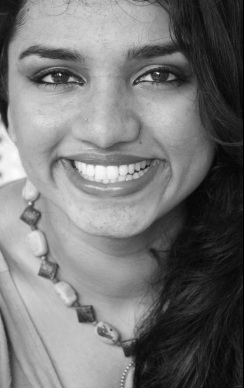 In “Prayer,” the first chapter of Science and Health, Mrs. Eddy explained how the motives for prayer affect outcomes. “Do we pray to make ourselves better or to benefit those who hear us, to enlighten the infinite or to be heard of men? Are we benefited by praying? Yes, the desire which goes forth hungering after righteousness is blessed of our Father, and it does not return unto us void.” (p.2) Then further on in the chapter she wrote, “Experience teaches us that we do not always receive the blessings we ask for in prayer. There is some misapprehension of the source and means of all goodness and blessedness, or we should certainly receive that for which we ask. The Scriptures say: ‘Ye ask, and receive not, because ye ask amiss, that ye may consume it upon your lusts.’” (p.10) Receptivity as a human quality is a choice. One has the right to choose their course of care, and invite into their mental sphere the healing influences they prefer. They may even accept or refuse to follow the direction of the guides they have chosen to help them advance. But receptivity as a spiritual quality - that is, a love for good and the capacity to grow in grace and goodness – is innate to every child of God. Where we don’t see the one (human quality), we can silently affirm the fact of the other (spiritual quality) for everyone in our focal distance. This isn’t interfering with anyone’s choices. It is judging righteous judgment and loving one’s neighbor. If others are blessed by your outlook, then good! In any case, both you and your practice certainly will be. From time to time I receive questions that 1) would take a whole blog post to answer, and 2) should take a whole blog post to answer, because others are wondering about them, too. This was one such case. :) Not a subscriber and want to be?
It's easy! Just sign up in the sidebar. You may also wish to: VISIT MY WEBSITE HOME PAGE FIND LINKS TO MY OTHER PUBLISHED CONTENT LISTEN TO A COLLECTION OF MY "YOUR DAILY LIFT" 2-MINUTE PODCASTS 7/7/2014 Nothing can deter you from healing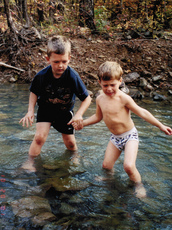 It is natural to want to help others through your prayers. Practicing prayer for others needn’t and shouldn’t be scary. Healing prayer is very fulfilling. It is motivated by love for God and man. While not every practitioner decides to advertise as a healer, taking out a listing in The Christian Science Journal can be a next step as the commitment to practice Christian Science healing matures into full-time availability to help others. But whether one is Journal-listed or not, the conditions and standards of practice are the same. Each one needs to do what is necessary to give effective help. To an early practitioner, Christian Science discoverer Mary Baker Eddy wrote, “Every day treat yourself that no evil suggestion nor argument can swerve you or frighten you--or deter you from healing and doing just what is needed here . . . Three times each day treat yourself for this temptation then watch that your house be not broken open.” [MBE to Alfred E. Baker, 2/2/1899, F00147] I remember a time when I felt totally blocked as a healer. Really stuck. I couldn’t see any progress in my cases and felt afraid. Maybe I shouldn’t be practicing, I thought. Then I confronted head-on that aggressive and false suggestion that I couldn’t heal. Three times a day I treated myself, my practice and my community to understand that God through Christ was the healer, and that as God’s reflection, I express His eternal, healing Christ. 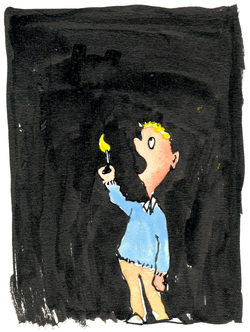 Mrs. Eddy defined Christ as “the divine manifestation of God, which comes to the flesh to destroy incarnate error.” (Science and Health with Key to the Scriptures, 583) She also spoke of this Christ as “voicing good, the divine message from God to men speaking to the human consciousness.” (ibid 332) She explained that this Christ is “the divine image and likeness, dispelling the illusions of the senses; the Way, the Truth, and the Life, healing the sick and casting out evils, destroying sin, disease, and death.” (ibid 332) I affirmed regularly that this very Christ is always a present and effective healer; that where I am, the healing Christ is manifest. As I did, I began to feel the authority that Christ gives each one to heal through prayer. I began to think of myself less as a personal healer and more as a perpetual witness to and expression of this healing Christ through every treatment I gave. I stopped being afraid that I couldn't heal. And then things started moving, really moving fast. Sometimes healing came so quickly that I asked myself if I had had the time to give the case a full Christian Science treatment. But my three-times-a-day prayer always showed me that its not a personal me doing something extraordinary in prayer. My role is to witness the Christ expressed in me and in the patient - to witness to the Christ-message of God’s perpetual care for His creation - the divine message of unending good that restores harmony where discord seems to be. I am trying to keep up a regular practice of treating myself three times a day “that no evil suggestion nor argument can swerve [me] or frighten [me]--or deter [me] from healing and doing just what is needed here.” It isn't always easy and sometimes I have to set an alarm to remember to do it. But I am striving to be regular about it, because, bottom line: Good healers are needed. And those of us whose love for God and man move us to want to lift up our brothers and sisters in healing prayer, have every right to be effective in our holy work. Let us lift up our hearts and our hands to God in heaven, and say... Not a subscriber and want to be?
It's easy! Just sign up in the sidebar. You may also wish to: VISIT MY WEBSITE HOME PAGE FIND LINKS TO MY OTHER PUBLISHED CONTENT LISTEN TO A COLLECTION OF MY "YOUR DAILY LIFT" 2-MINUTE PODCASTS  My most recent interview this past weekend on BBC Radio Devon is posted for listening and sharing. It runs about 9m30s. Enjoy! Not a subscriber and want to be?
It's easy! Just sign up in the sidebar. You may also wish to: VISIT MY WEBSITE HOME PAGE FIND LINKS TO MY OTHER PUBLISHED CONTENT LISTEN TO A COLLECTION OF MY "YOUR DAILY LIFT" 2-MINUTE PODCASTS |

Find me on YouTube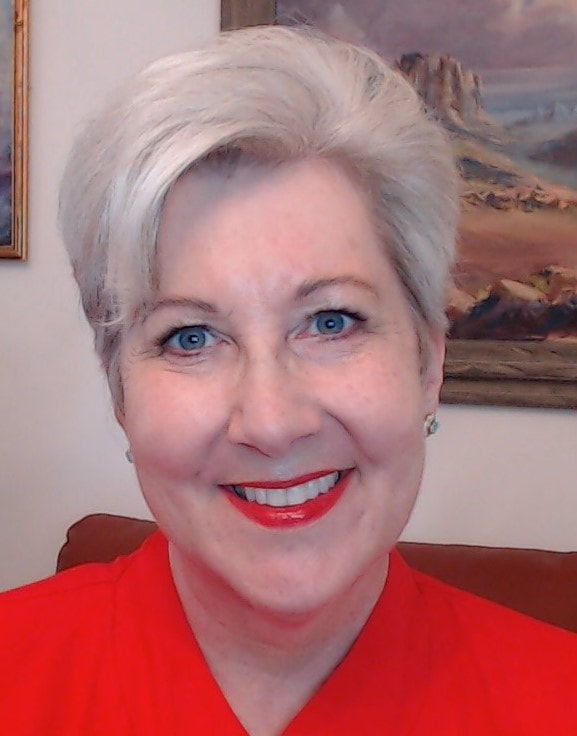
I have practiced Christian Science professionally in some form since 1979. But my journey with Christian Science started in a Sunday school where as a young child I was taught the Scriptures and some simple basics of Jesus' method of scientific Christian healing. A significant experience at the age of twelve opened my eyes to the great potential of this practice. After impaling my foot on a nail, I prayed the way I had learned in Sunday school. Within moments the pain stopped and healing began. By the next morning the wound had disappeared completely. Having experienced the great potential of Christian Science, there would be no turning back. |
INFORMATION |
SERVICES |
HELP |
© 2011-2024 Michelle Boccanfuso Nanouche, CSB. All rights reserved. Pages updated July 1, 2024.

 RSS Feed
RSS Feed
